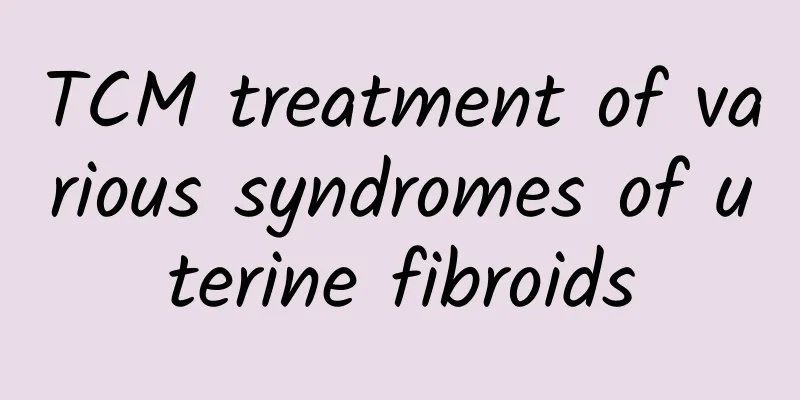TCM treatment of various syndromes of uterine fibroids

|
Uterine fibroids are the most common benign tumors of the female genitalia, and can be included in diseases such as abdominal masses, metrorrhagia, and leucorrhea. Traditional Chinese medicine believes that the onset of uterine fibroids is related to factors such as cold stagnation in the uterus, qi stagnation, and blood stasis. According to the patient's symptoms, it can be divided into multiple syndromes. The specific treatment methods for each syndrome include the following: 1. Qi stagnation and blood stasis type Treatment method: Activate blood circulation and remove blood stasis, soften and disperse nodules Prescription: Gexia Zhuyu Decoction with modifications. The prescription consists of Wulingzhi, Angelica, Chuanxiong, Peach Kernel, Moutan Cortex, Red Peony Root, Linderae, Corydalis, Licorice, Cyperus, Safflower, and Citrus Aurantium. 2. Cold and dampness stagnation type Treatment method: Warming the meridians and dispelling cold, activating blood circulation and eliminating symptoms Prescription: Shaofu Zhuyu Decoction with modifications. The prescription consists of fennel, dried ginger, Corydalis yanhusuo, myrrh, angelica, Chuanxiong, cinnamon, red peony root, pollen, and aconite. 3. Phlegm-dampness and blood stasis type Treatment method: Resolving phlegm and regulating qi, promoting blood circulation and eliminating symptoms Prescription: Kaiyu Erchen Decoction with modifications. The prescription consists of dried tangerine peel, Poria, Atractylodes, Cyperus, Chuanxiong, Pinellia, Citrus aurantium, Curcuma, Areca, Licorice, and Aucklandia. 4. Yin deficiency and internal heat type Treatment: Nourish yin and clear heat, cool blood and stop bleeding Prescription: Qinghai Pills with modifications. The prescription consists of Rehmannia glutinosa, Atractylodes macrocephala, White Peony Root, Dry Mulberry Leaves, Scrophularia ningpoensis, Chinese Yam, Cornus officinalis, Ophiopogon japonicus, Lycium bark, Adenophora scutellariae, Dendrobium officinale, Schisandra chinensis, and Dragon Bone. The above prescriptions are for reference only and patients should use them under the guidance of a professional doctor. |
<<: How effective is KS therapeutic device in treating cervical erosion?
>>: Experienced treatment of uterine fibroids
Recommend
What can I eat to make my uterine fibroids grow slower? What can I eat to make my uterine fibroids smaller?
Uterine fibroids are common benign tumors in gyne...
Women should pay attention to the increase of leucorrhea and be alert to the occurrence of adnexitis
In our lives, women are more likely to suffer fro...
The sweet chestnuts are so delicious! Stop eating after the 5th one and you won’t get fat
Walking on the streets in winter, you can smell s...
What harm does pelvic peritonitis cause to women?
Many women in life will suffer from pelvic perito...
What are the symptoms of left lateral adnexitis?
Life is as peaceful as usual, but the sudden pain...
Can you exercise while lying down? "Zero-position training" corrects atrophy and improves basal metabolism
Things to note for the "Zero Position Traini...
Traditional Chinese medicine treatment of vulvar leukoplakia
What are the traditional Chinese medicine treatme...
Experts explain the causes of cervical erosion
During the course of cervicitis, many female frie...
How to care for cervical warts
Cervical warts are a serious sexually transmitted...
How to conservatively treat ectopic pregnancy?
Ectopic pregnancy is a common gynecological disea...
Learn about effective care for vulvar leukoplakia
In recent years, due to various reasons, the inci...
Do you have many sports myths? Solve the top 10 questions for beginners!
From a life of partying every night to a health e...
Cervical erosion and falling in love with a young childless girl
Cervical erosion is a common gynecological diseas...
Let you know what is the cause of cervical hypertrophy?
Let you know what is the cause of cervical hypert...
A young woman weighed over 100 pounds and suffered from severe sleep apnea! Complete weight loss surgery + sleep surgery at one time
Patients with sleep apnea often have obesity prob...









